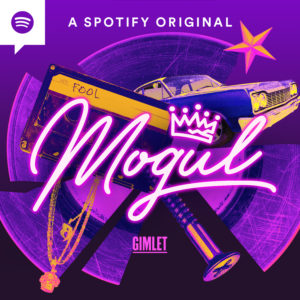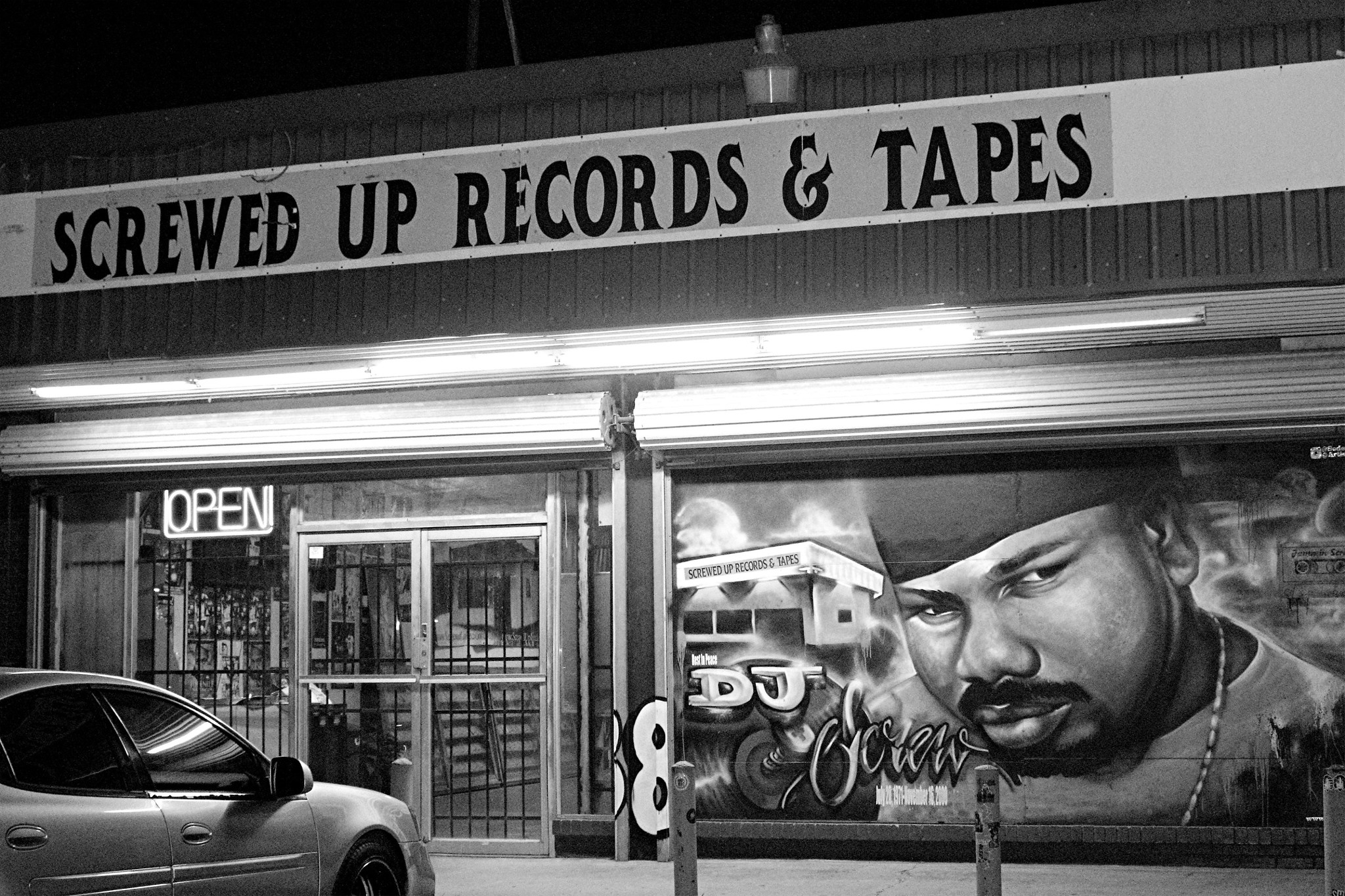This Sunday is a hip-hop holiday of sorts in Houston. It’s June 27, a date made iconic because of a DJ Screw mixtape with that name. Though he died two decades ago, Robert Earl Davis Jr., known as DJ Screw, has continued to influence hip-hop today. His life and legacy is the focus of a new season of the podcast “Mogul.” Brandon Jenkins is the program’s host.
DJ Screw’s Transformative Sound:
“The thing about it is that it’s so far beyond, I think, what most people had experienced before they ever heard it, that they – we often lack the words. Right? You just feel it. Amongst the team, we started calling it something that was three-dimensional; you’re not just listening to it, you’re feeling it. And some of the words you hear us use in this season is like ‘psychedelic’ or ‘cosmic’ because the sound does this thing where it takes music that you may know, music that you don’t, and it sort of slows it down. But within that, slowing it down allows you to really see each part of the music, whether it’s, you know, a guitar riff or a snare drum or just the intent of your vocals of whoever is rapping or singing. It’s something that when you hear it, you know what it is. But you’re always going to struggle to be able to describe it because the sound is so far beyond words.”

“Mogul” host Brandon Jenkins.
Tackling The Story Of A Reclusive Icon:
“As you fall more in love with the music, you start realizing you don’t know that much about this person. And for anyone that’s a journalist or a fan of music, that moment right there of what you don’t know, that’s the thing that’s exciting. But then when you do what we do at ‘Mogul’ and you actually have to start looking, it is intimidating. And it’s also the time in which he lived his life. You know, this is a person, this is sort of pre-internet, you know, in the way that we understand it, where you can Google somebody and figure out every step they made. This is a guy who, even as things were continually digitizing, he stayed analog in many ways. And in a world that was asking more of him to go more places, he said, ‘No, this is Texas. I want you to come to my shop and shake my hand and buy my cassettes.’ So that naturally presented a lot of challenges for us. But we went as far as we could and did 100-plus hours as a team to speak to people that really knew him, including his sister and including childhood friends and musicians that spent time around him, as well as people that have studied him in the academic space and throughout journalism to try to give a sort of well-rounded picture of a dude who had no interest in his popularity. He just wanted people to hear a sound.”
What ‘Mogul’ Means In The Context of DJ Screw:
“A mogul is someone that I think some people look at it just in terms of commerce, right? Like in terms of entrepreneurship and maybe how much how much actual cash you can net. No. 1, DJ Screw, his business, was very lucrative. So he managed to stack up a ton of funds doing what he did. But ‘Mogul’ is also about – our show is about legacy, people that are pioneers in the space and carving out new paths that we all walk down, and DJ Screw, I mean, you know, chopped and screwed sound, whether you heard it initially whenever he first dropped it, all the way, you know, in the early ’90s, you know or mid-’90s, all the way through the 2000s. But present day, it’s heard everywhere. I mean, it’s in pop music. It’s an effect that’s been employed in film, like, this came out of his head like, how do you? It’s always interesting when someone is able to think of something that isn’t there. Not even perfect something, just like to find this thing and say, ‘I’m going to do this; I’m going to make it better and I’m going to try to spread it to the world.’ And to me, that’s kind of what a mogul is. It’s not someone that just hoards wealth and, you know, stacks cash in some, Scrooge McDuck style. It’s someone that says, like, ‘I see value in this thing and I want other people to see, and I want as many people to get their hands on it. And I’m willing to go somewhere that other people haven’t ventured or even if they have, they didn’t see what I saw and how big it could be.’ … So when we put him alongside these other titans of hip-hop, you 100% have to respect him. You have to respect his DJ skills, his entrepreneurship, his musical vision, his creativity and his ability to galvanize people and to get them on his time. And it’s extremely unfortunate that he didn’t get to see the results of all that he created. But even a mogul that lives a long life, 80, 90 years old, they’ll never be able to see the results of what they’ve done because it continues on far beyond their time on Earth. And DJ Screw qualifies 100%.”
Exploring DJ Screw’s Roots In Smithville, TX:
“We start the story in Smithville. I think when you understand a little bit about Smithville, and I understand very little, I’m understanding this is a town that, at the time, I think they described it as like maybe three stoplights, you know, so you’re trying to wrap your head around this small country town and how it could make this genius. But you realize that a lot of his ethos and a lot of his values have to do with, Southern life, you know, looking people in the eye and shaking their hands and respect being huge in a Southern community, treating people like family and taking a real value to the people that that surround you. And he keeps those values really close to him and that affects his music, his business, his entrepreneurship and his vision. And all those signs point back to what we’ve learned about Smithville, Texas.”
Texas’ Larger Role In DJ Screw’s Story:
“This story is so self-contained in Texas. And the more time you spend with the people in his life and these, you know, these deep interviews, these emotional interviews, everyone has an immense love for Texas. And if you’ve never been, it’s hard to understand. But you realize that this music, this creation, this person could only be forged in a place like Texas. It’s the pace of it, it’s the respect for the music, it’s the love for each other and community that I’m sure other places have – but it’s different when you hear Southerners talk about it. They just string words together in a way that’s so passionate and with a ton of abundance that as someone who isn’t from Texas, it makes you want to get on a flight and then just go, you know?”














